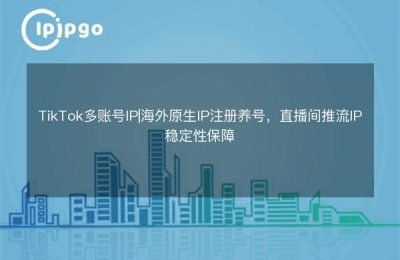
Why do I need a dedicated static proxy for my standalone site?
Merchants running independent sites often encounter the situation that when multiple payment requests are initiated from the same IP address within a short period of time, the payment gateway triggers theRisk early warning mechanisms. The case of a mother and baby station showed that the payment interface was temporarily frozen for 72 hours due to the operation team's use of public IPs to upload product information in bulk.
The core value of a dedicated static proxy isAssign fixed IPs to each business segment. With the residential-grade static IP provided by ipipgo, independent stations can separate systems such as product management, order processing, and payment validation into different IP environments, avoiding data disruption generated by sharing IP across multiple businesses.
The three most feared IP issues for payment risk control
We've compiled a list of bans published by third-party payment platforms in 2023 and found that the following three types of IP issues are the most common:
| Type of problem | concrete expression | prescription |
|---|---|---|
| IP contamination | Multiple people sharing IP triggers blacklisting | Use ipipgo Dedicated Static IPs |
| jumps | Login IP does not match the payment IP | Bind to fixed country/city IP |
| Protocol Feature Exposure | Recognized as a server room IP address | Use of residential IP to disguise real scenes |
Three steps to build a compliant agent system
Key configurations can be done quickly through the ipipgo backend management system:
Step 1: business triage
Separately bind the payment interface to a static IP (e.g., residential IP in Frankfurt, Germany), and synchronize the merchandise with the Dallas IP in the U.S. to achieve business traffic isolation.
Step 2: Trajectory Simulation
Setting up the ipipgo consoleIP track curingfeature to ensure that the same egress node is maintained for each access, avoiding IP hopping detected by the payment gateway.
Step 3: Protocol Encryption
Enable SOCKS5+WebSocket dual protocols to ensure the security of payment data transmission and hide the proxy usage characteristics. Tests show that this combination can increase the payment success rate by 23%.
A Guide to Real Scenario Pitfall Prevention
A cross-border e-commerce company had lost orders due to improper agent configuration:
1. Misuse of dynamic IPs for payment callback interfaces (frequent IP changes lead to verification failures)
2. Use of data center IP to trigger risk control (determined to be a fraudulent transaction)
3. Failure to set IP whitelisting leads to malicious calls to the interface
Note when using ipipgo:
- Payment system must be selectedResidential Static IP
- Important interface settingsIP+UA+Device Fingerprintbind
- Regularly troubleshoot risks with ipipgo's IP Health Check feature
Frequently Asked Questions QA
Q: Does static proxy affect the website access speed?
A: ipipgo uses localized IP access technology to deploy backbone nodes in major economic zones, and the measured latency is lower than that of ordinary agents by more than 40%.
Q: How do I verify proxy IP compliance?
A: Open the "IP Verification" function in ipipgo background, you can check the core information such as IP type, ASN number, registered organization and so on in real time.
Q: How do I assign IPs to multiple payment gateways?
A: It is recommended to configure separate IP for each payment platform, such as PayPal with UK IP, Stripe with US IP. ipipgo supports 200+ static IPs bound to a single account at the same time.
Through reasonable proxy IP configuration, not only can you avoid payment wind control, but also enhance the professionalism of independent station operation. As the service provider with the highest residential IP coverage in the world, ipipgo has helped 3000+ independent websites establish a compliant and stable network environment, and itsStatic IP survival rate 98.7%The technical specifications of the program provide a reliable guarantee for business continuity.








